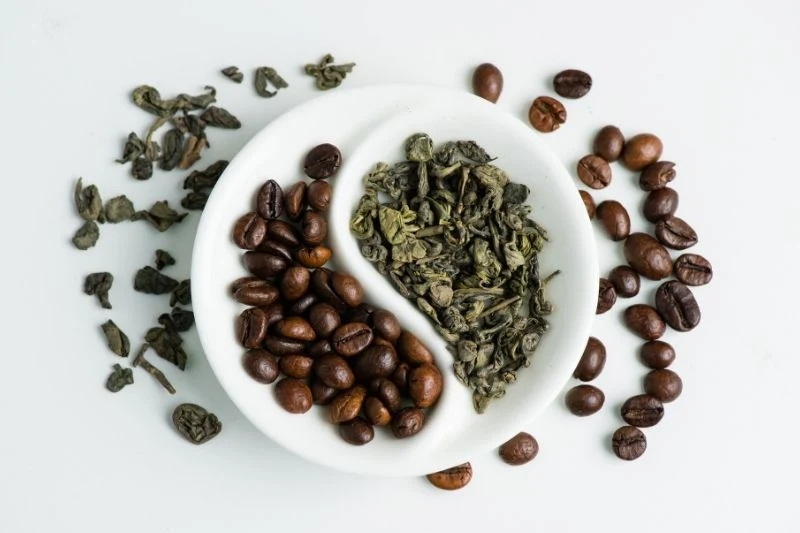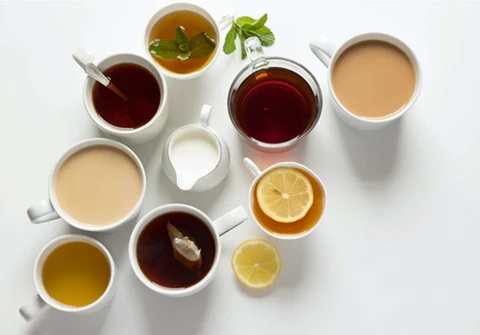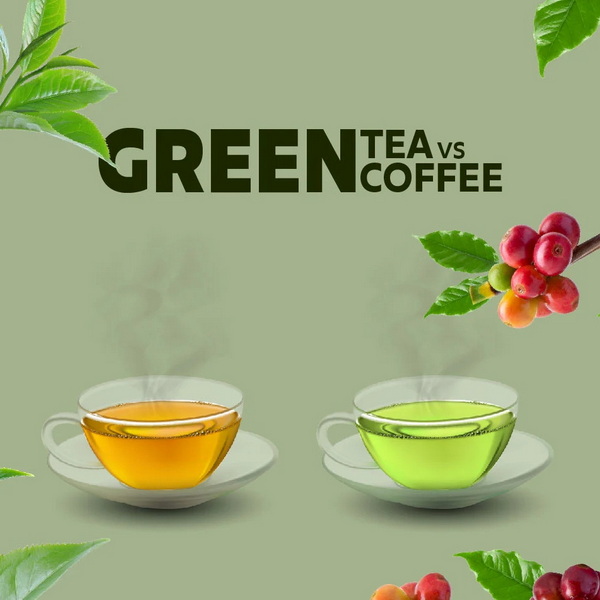Content Menu
● What is Green Tea Extract?
● Caffeine Content in Green Tea Extract
● How Much Caffeine in a 24 Mg Dose?
● Factors Influencing Caffeine Content
● Health Benefits of Green Tea Extract
● Potential Side Effects
● How to Incorporate Green Tea Extract into Your Diet
● Choosing Quality Green Tea Extracts
● Conclusion
● FAQ
>> 1. How much caffeine is in a cup of brewed green tea?
>> 2. Can I take green tea extract if I'm sensitive to caffeine?
>> 3. What are the main health benefits associated with green tea extract?
>> 4. How does the amount of catechins in green tea compare to coffee?
>> 5. Is it safe to consume high doses of green tea extract?
● Citations:
Green tea extract is a concentrated form of green tea that provides a variety of health benefits, largely due to its high content of catechins and caffeine. Understanding the caffeine content in green tea extract is essential for those looking to manage their caffeine intake while reaping the benefits of this popular supplement.

What is Green Tea Extract?
Green tea extract (GTE) is derived from the leaves of the Camellia sinensis plant and contains concentrated amounts of bioactive compounds, particularly catechins, which are powerful antioxidants. The most notable catechin is epigallocatechin gallate (EGCG), known for its potential health benefits, including weight loss support, improved heart health, and enhanced brain function.
The extraction process typically involves steaming or pan-frying the leaves, followed by drying and grinding them into a powder or extracting them into a liquid form. This process preserves the beneficial compounds found in green tea while concentrating their effects.
Caffeine Content in Green Tea Extract
The caffeine content in green tea extract can vary significantly depending on the brand and formulation. Here are some key points regarding the caffeine levels:
- Standard Caffeine Levels: Generally, an 8-ounce cup of brewed green tea contains about 30 to 50 mg of caffeine. In contrast, green tea extracts can contain anywhere from 15 mg to over 200 mg of caffeine per serving, depending on the concentration and formulation used.
- Specific Examples:
- NOW Foods Green Tea Extract: Contains approximately 32 mg of caffeine per capsule (400 mg of extract).
- Life Extension Mega Green Tea Extract: Offers around 25 mg of caffeine per serving (725 mg of extract).
- Jarrow Formulas Green Tea: Provides about 40 mg of caffeine per capsule (500 mg of extract).
How Much Caffeine in a 24 Mg Dose?
To determine the caffeine content in a specific dose of green tea extract, such as a 24 mg serving, we can use a general estimate based on typical concentrations:
1. Caffeine Concentration: If we assume that a standard green tea extract has about 5% caffeine by weight (a rough average across various products), then:
Caffeine in 24 mg=24 mg×0.05=1.2 mg
This means that a typical dose of 24 mg of green tea extract would contain approximately 1.2 mg of caffeine.
Factors Influencing Caffeine Content
Several factors can influence the actual caffeine content in green tea extracts:
- Extraction Method: Different extraction methods can yield varying amounts of caffeine. For instance, extracts that are more concentrated may have higher caffeine levels.
- Type of Green Tea Used: The specific variety and growing conditions of the tea plant can affect its natural caffeine content. For example, shaded teas like Gyokuro tend to have higher caffeine levels compared to other types.
- Serving Size: Always check the label for specific dosage recommendations and actual caffeine content per serving.

Health Benefits of Green Tea Extract
Green tea extract is associated with numerous health benefits:
- Weight Loss Support: Studies suggest that both catechins and caffeine can enhance thermogenesis and fat oxidation, potentially aiding weight loss efforts. Research indicates that EGCG can increase metabolism and fat burning during exercise.
- Antioxidant Properties: The high concentration of antioxidants in green tea extract helps combat oxidative stress, which can reduce the risk of chronic diseases such as heart disease and cancer. Antioxidants neutralize free radicals that cause cellular damage.
- Enhanced Cognitive Function: The combination of caffeine and L-theanine found in green tea may improve alertness and cognitive performance without causing jitteriness often associated with coffee. L-theanine promotes relaxation while counteracting the overstimulation caused by caffeine.
- Heart Health Improvement: Regular consumption of green tea extract has been linked to lower cholesterol levels and improved cardiovascular health. Studies show that it can help reduce LDL cholesterol levels and improve blood vessel function.
- Blood Sugar Regulation: Some research suggests that green tea extract may help regulate blood sugar levels by improving insulin sensitivity, which could be beneficial for individuals with type 2 diabetes.
Potential Side Effects
While moderate consumption is generally safe, excessive intake can lead to side effects such as:
- Insomnia: Due to its caffeine content, taking green tea extract too late in the day may interfere with sleep patterns.
- Nervousness: Some individuals may experience anxiety or nervousness when consuming high doses due to increased stimulation from caffeine.
- Stomach Upset: High doses can lead to gastrointestinal discomfort or upset stomach for some people.
- Increased Heart Rate: Excessive consumption may lead to palpitations or an increased heart rate due to elevated caffeine intake.
Individuals sensitive to caffeine should consider their overall intake from all sources, including other supplements and beverages.
How to Incorporate Green Tea Extract into Your Diet
Incorporating green tea extract into your daily routine can be simple:
- Supplements: Available in capsule or powder form, supplements are an easy way to include concentrated amounts without having to drink multiple cups of tea daily.
- Smoothies: Adding powdered green tea extract to smoothies can enhance their nutritional profile while providing a gentle energy boost.
- Baking: Incorporate green tea powder into baked goods like muffins or pancakes for added flavor and health benefits.
- Hot Beverages: Mix powdered extracts into hot water or milk for a soothing drink with numerous health benefits.
Choosing Quality Green Tea Extracts
When selecting a green tea extract product, consider the following factors:
- Standardization: Look for products that specify the amount of EGCG or catechins per serving. Standardized extracts ensure consistent quality and potency.
- Source Transparency: Choose brands that provide information about sourcing practices and extraction methods. High-quality extracts come from reputable sources with sustainable practices.
- Third-party Testing: Opt for products that have undergone third-party testing for purity and potency. This ensures you are getting what you pay for without harmful contaminants.
Conclusion
In summary, a typical serving size of 24 mg of green tea extract contains about 1.2 mg of caffeine, which is relatively low compared to other caffeinated beverages. However, it's essential to be aware that different brands may offer varying amounts of caffeine based on their formulations. Always read labels carefully and consult healthcare professionals if you have concerns about your caffeine intake or health conditions.
Green tea extract not only provides a modest amount of caffeine but also delivers numerous health benefits through its rich antioxidant profile. By understanding how much caffeine is present in these extracts and how they fit into your overall diet, you can make informed choices about your health regimen.

FAQ
1. How much caffeine is in a cup of brewed green tea?
A standard cup (8 ounces) of brewed green tea typically contains between 30 to 50 mg of caffeine.
2. Can I take green tea extract if I'm sensitive to caffeine?
Yes, but it's advisable to start with lower doses or choose decaffeinated options to minimize potential side effects.
3. What are the main health benefits associated with green tea extract?
Green tea extract may aid in weight loss, provide antioxidant support, improve heart health, and enhance cognitive function.
4. How does the amount of catechins in green tea compare to coffee?
Green tea generally has higher levels of catechins compared to coffee's antioxidant content; however, coffee may have higher overall antioxidant activity due to its roasting process.
5. Is it safe to consume high doses of green tea extract?
While moderate doses are generally safe for most people, high doses can lead to adverse effects such as liver damage or increased heart issues; always consult with a healthcare provider for personalized advice.
Citations:
[1] https://www.healthline.com/nutrition/10-benefits-of-green-tea-extract
[2] https://www.lifeextensioneurope.com/mega-green-tea-extract-lightly-caffeinated-100-vegetarian-capsules
[3] https://www.livestrong.com/article/186702-how-much-caffeine-is-in-green-tea-extract/
[4] https://www.youtube.com/watch?v=CkdqsIhHEhM
[5] https://www.zhounutrition.com/blogs/the-greatness-files/green-tea-extract-q-a
[6] https://www.healthline.com/nutrition/caffeine-in-green-tea
[7] https://www.caffeineinformer.com/caffeine-content/green-tea-extract
[8] https://www.youtube.com/watch?v=Q8gBjZ5e3Bs
[9] https://health.clevelandclinic.org/green-tea-extract-a-better-way-to-boost-energy-or-not
[10] http://www.greenskybio.com/blog5/best-answers-to-7-key-questions-about-green-tea-extract.html
[11] https://examine.com/supplements/green-tea-extract/
[12] https://www.webmd.com/drugs/2/drug-76714/green-tea-leaf-extract-oral/details
[13] https://www.medicalnewstoday.com/articles/269538
[14] https://www.mayoclinic.org/healthy-lifestyle/nutrition-and-healthy-eating/in-depth/caffeine/art-20049372
[15] https://www.reddit.com/r/chemistry/comments/3gt1zo/how_much_caffeine_in_green_tea_extract/
[16] https://pubmed.ncbi.nlm.nih.gov/10584049/
[17] https://www.nowfoods.com/products/supplements/egcg-green-tea-extract-400-mg-veg-capsules
[18] https://www.naturewise.com/products/green-tea-extract
[19] https://www.medicalnewstoday.com/articles/269538
[20] https://pubmed.ncbi.nlm.nih.gov/16506807/
[21] https://www.sugimotousa.com/blog/green-tea-vs-coffee-everything-you-need-to-know
[22] https://pmc.ncbi.nlm.nih.gov/articles/PMC7098939/
[23] https://www.healthline.com/nutrition/10-benefits-of-green-tea-extract
[24] https://pmc.ncbi.nlm.nih.gov/articles/PMC4307170/
[25] https://cytomatrix.ca/products/green-tea-extract-90-v-caps/
[26] https://www.youtube.com/watch?v=RIbff5iD0GQ
[27] https://www.youtube.com/watch?v=my7FIaS1mGQ
[28] https://www.truecitrus.com/blogs/tc/clean-caffeine-in-green-tea-vs-coffee
[29] https://support.optimumnutrition.com/en/support/solutions/articles/80001094135-how-much-caffeine-is-in-your-green-tea-and-green-coffee-extracts-
[30] https://www.elo.health/articles/green-tea-extract-supplements/
[31] https://www.tandfonline.com/doi/full/10.1080/15502783.2024.2323919






























